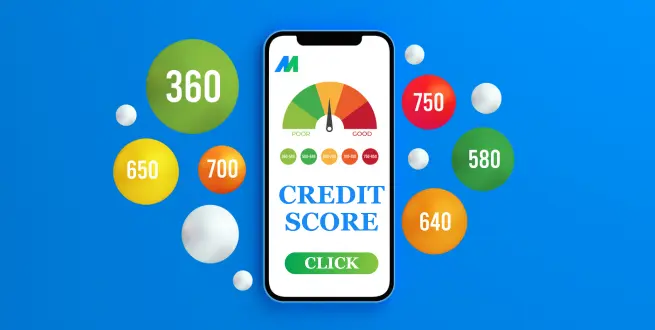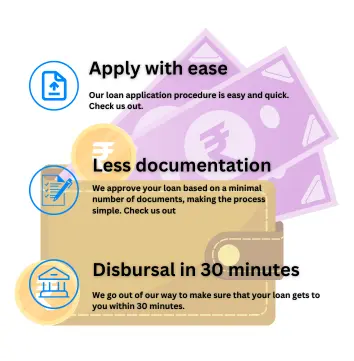Credit Score

Credit Score
A credit score, also known as a Cibil score, A credit score card is a summary of an individual's credit report that includes their credit score, payment history, credit utilization, and other credit-related information. It helps lenders quickly assess an individual's creditworthiness and make informed decisions on loan approvals and interest rates. Regularly monitoring one's Cibil score check and taking steps to improve it can lead to better loan offers and financial stability.It is essentially a calculation of your borrowing ability based on your historical credit behavior. Simply said, your credit score advises lenders about your borrower's reliability, the likelihood of default on new loans, and other things. When you apply for any form of loan or credit card , then MoneyFinserv will thoroughly reviews your credit report and credit history that is stored in your credit report.If you consistently fail to make credit card or loan EMI payments on time, your credit score will suffer. Your credit score is likely to be good if you have been responsible with your credit card and EMI payments and haven't showed any signs of being credit-hungry by applying for credit regularly.
Apply For Credit ScoreAdvantages of Having a Good Credit Score By MoneyFinserv
A strong credit score might make it easier to get loans and credit cards. MoneyFinservprefer candidates with strong credit scores since they have a track record of timely repayments. Some of the advantages of having a good credit score are as follows.
- People with good Cibil score can get any form of a loan with a low-interest rate. This is an advantage of having a good credit score. A loan with a high-interest rate might pinch your pocket and become burdensome in the long run.
- Increased likelihood of loan and credit card approval because a strong credit score represents excellent financial practices, lenders are no longer interested.
- You can get the ability to negotiate with the lender if you have a decent credit score.You can bargain for a lower rate of interest on loans and get your favorite credit card which comes with numerous benefits.
- Having a good credit score card comes with many advantages, such as easier loan approvals, lower interest rates, and better credit card offers.
- A good cibil score check can also increases one's chances of renting an apartment, getting a job, and even qualifying for insurance discounts. A good credit score reflects responsible credit behavior, which is highly valued byMoneyFinserv, leading to better financial opportunities and stability.
Credit Score In India
In India, credit ratings range from 300 to 900, with 750 being considered good. MoneyFinservuse credit scores to determine the likelihood of an individual repaying their loans. A higher credit score increases the chances of loan approval and can lead to more favorable interest rates. Credit scores can be checked for free once a year, and it is important to regularly monitor and improve one's score by paying bills on time, keeping credit card balances low, and avoiding multiple loan applications in a short period of time.
-
How quickly can I get approved for a cash advance loan?
If you already have a credit history, you can check your eligibility, choose a card that suits your lifestyle needs and apply for it on MoneyFinserv.If you do not have a credit history, you can apply for a safe credit card, which is normally issued in exchange for a fixed deposit.
-
What is a good credit score?
In India, credit scores range from 300 to 900, and a score of 750 or higher is considered good. A higher credit score increases the chances of loan approval and can lead to more favorable interest rates.
-
How can I improve my credit score?
One can improve their credit score by paying bills on time, keeping credit card balances low, avoiding multiple loan applications in a short period of time, and maintaining a good credit mix.
-
Can my credit score be affected by someone else's credit history?
No, your credit score is based solely on your credit history and is not affected by someone else's credit history, even if they are your spouse or family member.


